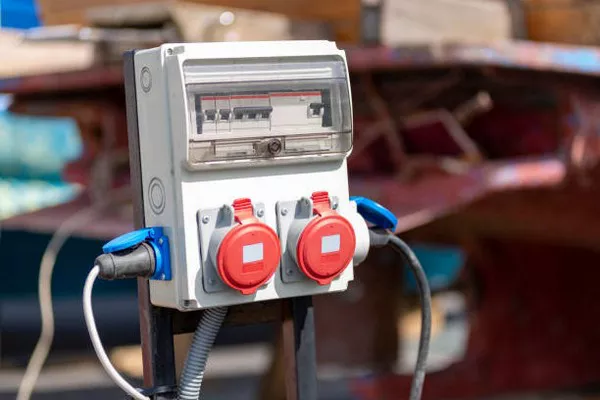Industrial instrumentation is a critical component of today’s manufacturing and process industries. It plays a pivotal role in monitoring, controlling, and optimizing various processes and systems, ensuring safety, efficiency, and reliability. This article explores the fundamental concepts of industrial instrumentation, its significance in the industrial landscape, and the key instruments and technologies that drive the field forward.
What is Industrial Instrumentation?
Industrial instrumentation refers to the use of specialized devices and systems to measure, monitor, control, and record various parameters and variables in industrial processes. These parameters can range from physical quantities like temperature, pressure, flow, level, and humidity to chemical properties such as pH and concentration. Industrial instrumentation is the bridge between the physical world of manufacturing and the digital world of automation and control.
Significance of Industrial Instrumentation
Process Optimization: Industrial processes often involve complex systems with multiple variables. Instrumentation helps in collecting real-time data, which can be analyzed and used to optimize processes for improved efficiency and reduced resource consumption.
Quality Control: Many industries, such as pharmaceuticals, food production, and automotive manufacturing, demand strict quality control. Instrumentation ensures that products meet specified standards by monitoring variables like temperature, pressure, and flow during production.
Safety: In hazardous environments, like chemical manufacturing or oil refineries, instrumentation is vital for monitoring and controlling critical parameters to prevent accidents and ensure the safety of both equipment and personnel.
Regulatory Compliance: Industries often must comply with various regulations and standards. Instrumentation provides the necessary data to prove adherence and prevent legal issues.
Data for Decision-Making: Accurate and real-time data provided by industrial instrumentation enables informed decision-making, helping management make necessary adjustments to improve operations and reduce costs.
Key Instruments in Industrial Instrumentation
Pressure Sensors: Pressure sensors are used to measure fluid or gas pressure in a wide range of applications. They are crucial in controlling processes, ensuring safety, and monitoring equipment integrity.
Temperature Sensors: Temperature sensors, such as thermocouples and resistance temperature detectors (RTDs), monitor temperature changes in various processes and systems, ensuring that conditions remain within specified ranges.
Flow Meters: Flow meters measure the rate of fluid or gas flow in pipelines. They are essential in managing material flow in industries like water treatment, chemical processing, and oil and gas.
Level Sensors: Level sensors determine the level of liquids or solids in tanks, silos, or other containers. They are vital for ensuring that processes do not overflow or run dry.
Analytical Instruments: These instruments are designed to measure the chemical composition of substances. They include pH meters, gas analyzers, and spectrometers, and are critical in industries where precise chemical measurements are essential.
Control Systems: Industrial control systems include programmable logic controllers (PLCs) and distributed control systems (DCS). These systems use data from various sensors and instruments to automate processes and make real-time adjustments for optimal performance.
Data Loggers: Data loggers record and store data from various instruments over time. This historical data is crucial for trend analysis, troubleshooting, and compliance reporting.
Safety Instruments: These instruments include gas detectors, flame detectors, and pressure relief valves, which are designed to prevent and mitigate hazardous situations in industrial environments.
Emerging Trends in Industrial Instrumentation
Industrial Internet of Things (IIoT): The integration of sensors, data analytics, and cloud computing is revolutionizing industrial instrumentation. IIoT allows for remote monitoring and control of industrial systems, predictive maintenance, and enhanced efficiency.
Wireless Technology: Wireless instruments are becoming more prevalent, reducing the need for extensive cabling and making it easier to deploy instruments in hard-to-reach or hazardous locations.
Advanced Data Analytics: The use of machine learning and artificial intelligence is helping industries extract more value from the data generated by instrumentation. Predictive analytics can detect issues before they become critical and suggest optimization strategies.
Cybersecurity: As industrial systems become more connected and reliant on digital technology, the need for robust cybersecurity measures to protect against cyber threats is growing.
Miniaturization and Portability: Smaller, more portable instruments are emerging, allowing for greater flexibility in monitoring and controlling processes in various settings.
Conclusion
Industrial instrumentation is a cornerstone of modern manufacturing and process industries. It empowers organizations to monitor, control, and optimize their processes, ensuring efficiency, safety, and compliance with regulations. Key instruments such as pressure sensors, temperature sensors, and flow meters play a vital role in the data collection process, while control systems and data loggers help automate and record the necessary information. With emerging trends like IIoT, wireless technology, advanced data analytics, and improved cybersecurity, the field of industrial instrumentation is evolving to meet the increasingly complex demands of today’s industries. As technology continues to advance, industrial instrumentation will remain an indispensable tool for industries seeking to enhance their operations and stay competitive in the global marketplace.

